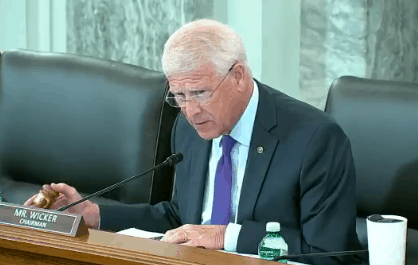
Sen. Wicker
WASHINGTON (Reuters) – A U.S. Senate hearing to reform an internet law and hold tech companies accountable for how they moderate content quickly turned into a political scuffle as lawmakers not only went after the companies but also attacked each other.
Lawmakers are split on ways to hold Big Tech accountable under Section 230 of the Communications Decency Act – which protects companies from liability over content posted by users but also lets the firms shape political discourse.
Republican lawmakers used most of their time during the hearing to accuse the companies of selective censorship against conservatives. Democrats primarily focused on insufficient action against misinformation that interferes with the election.
In response to a limited number of questions discussing the law, the chief executives of Twitter, Facebook, and Google said it was crucial to free expression on the internet. They said Section 230 gives them the tools to strike a balance between preserving free speech and moderating content, even as they appeared open to suggestions the law needs moderate changes.
All three CEOs also agreed the companies should be held liable if the platforms act as a publisher but denied being the referees over political speech – a claim that angered some Republicans.
Senator Ted Cruz went after Twitter’s Jack Dorsey after the CEO said Twitter has no influence over elections.
“Who the hell elected you and put you in charge of what the media are allowed to report and what the American people are allowed to hear,” Cruz said, referring to the platform’s decision to block stories from the New York Post about the son of Democratic presidential candidate Joe Biden. Ahead of the hearing, the senator released a picture on Twitter titled “Free Speech showdown Cruz vs Dorsey” that showed him and Twitter’s Dorsey pitted against each other.
Democratic Senator Brian Schatz said he did not have any questions, calling the hearing “nonsense”.
“This is bullying and it is for electoral purposes,” he said.
Other Democrats including Tammy Baldwin, Ed Markey and Amy Klobuchar also said the hearing was held to help President Donald Trump’s re-election effort.
Trump, who alleges the companies’ stifle conservative voices, tweeted “Repeal Section 230!” during the hearing.
Twitter’s Dorsey, who drew the most amount of criticism from Republicans, warned the committee that eroding the foundation of Section 230 could significantly hurt how people communicate online. Pichai said Google operates without political bias and that doing otherwise would be against its business interests.
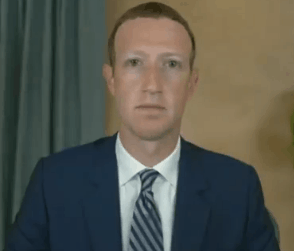
Zuckerberg at today’s hearing.
Zuckerberg, who briefly had difficulty with his internet connection at the start of the hearing, said he supports changing the law but also warned that tech platforms are likely to censor more to avoid legal risks if Section 230 is repealed. Biden has expressed support for revoking the law.
NO MORE “FREE PASS”
Republican Senator Roger Wicker, who chairs the committee, said it was important to shield companies from liability without giving them the ability to censor content they dislike.
“The time has come for that free pass to end,” he said.
Wicker also criticized Twitter’s decision to block the New York Post stories about Biden’s son and Facebook’s move to limit their reach.
He and other senators such as Cory Gardner went after Twitter for not taking down tweets from world leaders that allegedly spread misinformation but going aggressively after Republican President Donald Trump’s tweets.
U.S. lawmakers are not the only ones pushing for reform. The European Union’s executive Commission is drafting a new Digital Services Act that, in addition to tackling market abuses by dominant platforms, would also address liability for harmful or illegal content. Competition Commissioner Margrethe Vestager is due to unveil her proposals on Dec. 2.
Reporting by Nandita Bose and David Shepardson in Washington; Additional reporting by Diane Bartz in Washington and Douglas Busvine in Frankfurt; editing by Kirsten Donovan and Lisa Shumaker


 Subscribe
Subscribe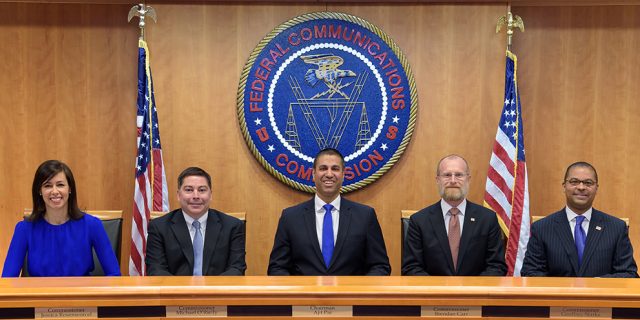 WASHINGTON (Reuters) – The U.S. Federal Communications Commission voted 3-2 on Tuesday to maintain its 2017 repeal of Obama-era net neutrality rules, even after a federal court directed a review of some provisions of the repeal.
WASHINGTON (Reuters) – The U.S. Federal Communications Commission voted 3-2 on Tuesday to maintain its 2017 repeal of Obama-era net neutrality rules, even after a federal court directed a review of some provisions of the repeal.
 In fact, many broadband providers elected to curtail investment even before the COVID-19 pandemic arrived. Charter, Comcast, AT&T, and Verizon have all reduced investment in residential wired broadband services, in part because of a lack of competitive marketplace. Pai, a former lawyer for Verizon, has spent the last four years making life very comfortable for the country’s largest internet service providers. He eliminated mandated competition in set-top boxes, did nothing to stop data caps, eliminated net neutrality protections, and helped enact new rules allowing mobile providers to place future cell towers and other equipment in places that have never been acceptable before.
In fact, many broadband providers elected to curtail investment even before the COVID-19 pandemic arrived. Charter, Comcast, AT&T, and Verizon have all reduced investment in residential wired broadband services, in part because of a lack of competitive marketplace. Pai, a former lawyer for Verizon, has spent the last four years making life very comfortable for the country’s largest internet service providers. He eliminated mandated competition in set-top boxes, did nothing to stop data caps, eliminated net neutrality protections, and helped enact new rules allowing mobile providers to place future cell towers and other equipment in places that have never been acceptable before.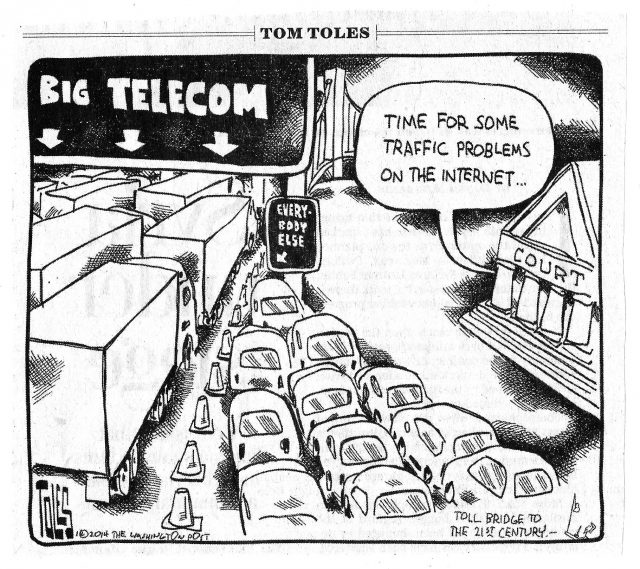 Pai’s tenure as chairman has been four years of smug arrogance and a complete disinterest in the input of consumers. Millions have told the FCC to leave net neutrality policies in place. Pai and his Republican colleagues ignored them. The Republican commissioners have delivered speeches at some of the most partisan right-wing groups imaginable, but won’t respond to ordinary Americans looking for actual evidence of competition and consumer protection. For much of this year, Pai’s two Republican colleagues have spent much of their time on Twitter pursuing their own agendas. Commissioner O’Rielly has made closing down low power community pirate radio stations his obsession. At least that is covered under the FCC’s mandate. Commissioner Carr has spent his time on Twitter complaining about people being mean to President Trump on social media, his obsession with China and freedom of speech, and his suspicions about the World Health Organization (WHO).
Pai’s tenure as chairman has been four years of smug arrogance and a complete disinterest in the input of consumers. Millions have told the FCC to leave net neutrality policies in place. Pai and his Republican colleagues ignored them. The Republican commissioners have delivered speeches at some of the most partisan right-wing groups imaginable, but won’t respond to ordinary Americans looking for actual evidence of competition and consumer protection. For much of this year, Pai’s two Republican colleagues have spent much of their time on Twitter pursuing their own agendas. Commissioner O’Rielly has made closing down low power community pirate radio stations his obsession. At least that is covered under the FCC’s mandate. Commissioner Carr has spent his time on Twitter complaining about people being mean to President Trump on social media, his obsession with China and freedom of speech, and his suspicions about the World Health Organization (WHO).
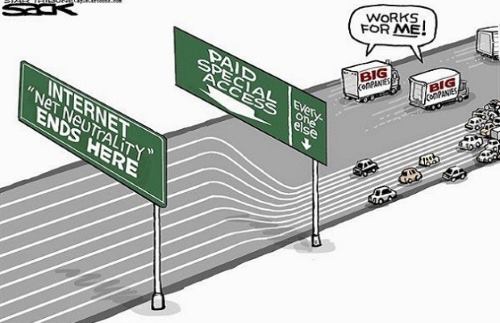 WASHINGTON (Reuters) – A U.S. appeals court on Tuesday rejected the decision of the Federal Communications Commission to declare that states cannot pass their own net neutrality laws and ordered the agency to review some key aspects of its 2017 repeal of rules set by the Obama administration.
WASHINGTON (Reuters) – A U.S. appeals court on Tuesday rejected the decision of the Federal Communications Commission to declare that states cannot pass their own net neutrality laws and ordered the agency to review some key aspects of its 2017 repeal of rules set by the Obama administration.